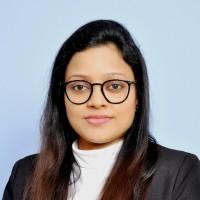
March 10, 2021
To mark the 2021 International Women’s Day themed #Choose to Challenge, Afronomicslaw.org celebrates Dr Dilini Pathirana’s brilliant contributions to International Investment Law. Dr Pathirana is a Senior Lecturer at University of Colombo, a founding committee member of South Asia International Economic Law Network (SAIELN), an editorial board member of Sri Lanka Journal of International Law (SLJIL) and a contributing editor on Afronomicslaw.org.
“#Choose to Challenge: A challenged world is an alert world and from challenge comes change. So let's all choose to challenge.”
Afronomicslaw.org (A): Please tell us about your research.
Dr Dilini Pathirana (DP): My research interest primarily lies in International Investment Law, which focuses on promoting, protecting, and regulating cross-border capital investments. I concentrate on China's rise as a global investor and its economic, social, and political impact on small developing countries such as Sri Lanka (where I come from) and international investment governance.
A: How did you become interested in academia and international law?
DP: When I was a law undergraduate, I started to reflect upon many social phenomena, including law, legal education, and women's role in the field of law. I observed that only a few Sri Lankan women had become well-known academics in the field of international law. This is despite the fact that there are several great Sri Lankan legal scholars in the field of international law, such as late justice C.J. Weeramantry and Professor M. Sornarajah. This lacuna made me interested in academia and International Law, particularly International Investment Law, in which Sri Lanka has played a notable role as a third world developing country. It has fully embraced the notion of International Investment Agreements and become the first-ever country challenged by a foreign investor under a dispute settlement clause in such a treaty.
A: What informs your scholarly interventions?
DP: My scholarly interventions show that women, especially from the Global South, can also actively engage in international legal debates and effectively contribute to the contemporary discourse on global governance.
A: Have you faced any challenges in your career because of your gender? If you have, how did you overcome these challenges?
DP: I believe that being an academic is not an easy task, no matter what your gender is. This is because that amount of work and the pressure involved in being in academia is considerable. However, being a female academic is more challenging, particularly in a society where women are supposed to play a conventional role as daughters, wives, and mothers. The fulfilment of duties attached to these roles is considered the main criteria for defining a successful woman. These social ideologies are the most significant challenges that I have encountered from the outset of my career as an academic. Indeed, dealing with such traditional social ideologies was not easy until I formulated my (own) criteria to define a successful woman, especially in a personal capacity.
A: What lessons have you learnt in the course of your career so far?
DP: The most important lesson that I have learned during my career so far is that you should never give up. If you have "a passion for excellence" you should believe in yourself and work hard for your dreams.
A: What are the biggest highlights of your career so far and what accomplishments are you most proud of?
DP: So far, the biggest highlight in my career is becoming one of the few female academics in Sri Lanka to earn a PhD specializing in International Investment Law, perhaps the most disputed branch of International Law. At the same time, I am humbly proud of being awarded the Chinese Government Scholarship for the Most Outstanding International Student at the China University of Political Science and Law in the academic year 2017. Finally, I am very proud to receive the University of Colombo Senate Award for Excellence in Research in 2018, under the Early Career Category.
A: What advice would you give to younger female academics and students?
DP: My advice to younger female academics and students is to think differently, take risks, and pursue your dreams with a passion.
A: Please describe yourself in three words.
DP: I am an ambitious and courageous person who believes in humanity.
A: What makes you happy.
DP: Spending time with my family and Mother Nature make me happy. And I firmly believe that happiness is the immense wealth of a human being.
A: What changes to the world would you like to see?
DP: I would like to see a world that fully respects human dignity and Mother Nature.